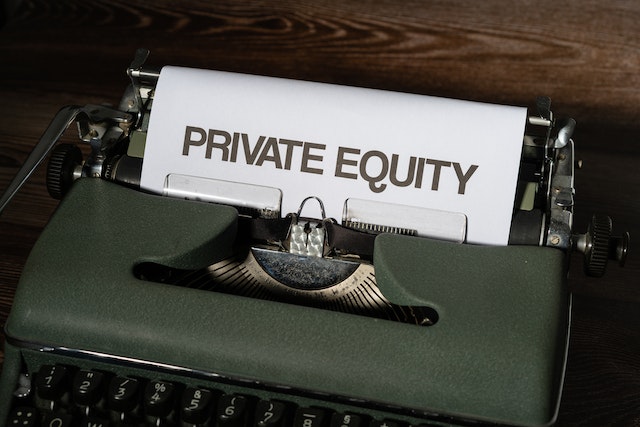

It has been reported that the number of people all over the world with equities being a significant part of their portfolios is growing steadily. If you are trying to invest your funds, you are probably looking to get a good return out of them. After all, your purpose here is to increase your profit and gain some money. But before you buy equities, you first need to understand what is equity investment and how to choose the best option for you.
What are equities?
So, what is an equity, to be more precise? Equity is more or less your share of a certain company. When you make an equity investment, you put your money in a business by buying the shares they put on the stock market.
These shares represent a small part of the company itself, which means that once you figure out what does equities mean and buy them, you are entitled to a portion of the assets and profits.

How does equity work?
We determined the equity investment definition, but how exactly does it work for you? As mentioned, when you make an equity investment, you gain partial ownership of a company by being a shareholder. When the company gains profit and begins liquidating assets, you will get a return as an investor.
For instance, let’s say that the owner of a small company has a brilliant idea for a new product – but to create the line, a certain capital will be needed. If they do not have that capital available, they may decide to put shares on the market and attract investors. Their job here is to convince the buyers that the new product will be a huge success and that their investment will surely turn profitable.
Types of equities and their features
After learning what are investment equities, you should also know that there are multiple types of equities out there. These include:
1. Common stocks
When you hold common stocks, you actually hold a part of the company but have no control over the actions that are taken to run the business. Many find this a risky investment, but in the short term, it is usually fairly profitable.
2. Warrants
When it comes to warrants, common stock can be purchased only for a specified amount of time. If that time passes and the stocks are not purchased, then they lose their value. However, if they are purchased, they may end up bringing profit in the long term.
3. Purchase of preferred stocks
Similar to common stocks, you obtain a share of the company but with no actual control over the taken action. You will receive dividends on a regular basis, which are separate from the market – this makes them less risky than common stocks.
4. Equity line of credit
Like a credit line from the bank, this equity allows you to purchase stocks over a specific amount of time. The benefit of buying this kind of equity is that you may get the stocks at a lower price, allowing you to save money.

The bottom line
If you want to invest some of your funds and buy stocks, you should learn all about what are equity investments. A certain type of equity can bring you a different kind of profit. By understanding the risks and choosing the equities in a calculated manner, you can gain returns in the long term.
at a lower price, allowing you to save money.
What is equity in a business?
In a business, equity refers to the accounting and finance value offered to the shareholders of a company. It can measure the total assets of a firm minus all its liabilities. Then, in case a company has to liquidate, the equity represents how much is given back to the shareholders once all the debts are paid off and all the assets get sold.
For example, if a company has traded at a 1.5 price to book value for a long time, an investor may be hesitant to pay over the valuation if the prospects of the company have not gotten better.
In business, equity is very commonly used to figure out a firm’s financial stability and value. When a company has negative equity, it means that its full asset value doesn’t exceed that of its liabilities. Meanwhile, when the equity is positive, it shows that the total value of the assets is higher than the liabilities’ value. On top of that, when equity is prolonged, it’s a sign of balance sheet insolvency.
Because the firm’s stock price is influenced by equity, many investors rely on it for valuable information. In other words, it’s a strong indicator of whether one should invest in a stock or not.
When shareholder equity is negative, investors see it as an unsafe or risky investment and will stay away from it. But while this is the case, equity is not the sole financial health indicator a firm has, so investors should not rely on it alone. Ideally, it should be used in combination with other metrics and tools. Doing so will guarantee an accurate analysis of a business’s financial health and will allow the investor to make an informed decision on whether to invest or not.
What is equity in a balance sheet?
It’s crucial to recognize equity on a balance sheet. It is the book value of the assets of the shareholder following the removal of liabilities. When you are looking at the balance sheet, you can find out the equity of a firm based on the difference between its assets and liabilities.
Equity is one of the most common data pieces found on the balance sheet, and it’s frequently used to determine the financial condition of the business.
Why is equity so important?
Equity is an extremely important measurement. It tells the potential investor data about the value of the funds of the shareholder. As such, the investor can discover the company’s value and decide whether investing is worth it or not.
When taken into account, equity will tell an investor how much their stake would value in a company. The value is represented by the number of shares. When someone owns stock in a firm, shareholders have a chance of getting dividends and capital gains.
But that is not all – having equity will provide shareholders with the right to make votes when board of directors’ elections take place, and even on different corporate actions. So, it only makes sense that shareholders are interested in a company with good equity.
What is a company’s market cap, and is it the same as equity?
The market cap refers to the company’s market value. Therefore, it is the equity value as determined by the market.
While market cap or market capitalization is the full value of the company’s outstanding shares in dollars, equity is merely a statement of the assets of the company after the liabilities are removed. They are different, but if you want to have a better picture of the whole value of a firm, you should consider both.









